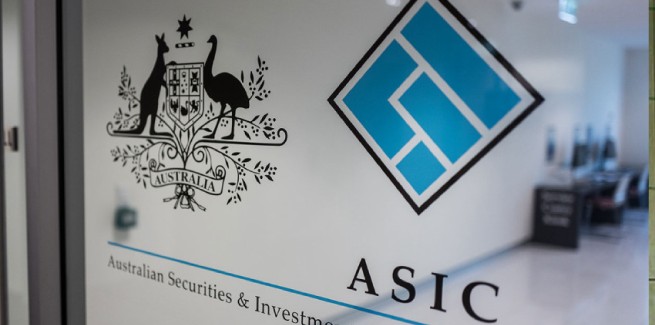New responses to a parliamentary committee revealed why the Australian Securities and Investments Commission (ASIC) chose to delay sending vital documents around chair James Shipton’s accounting expenses to the Australian National Audit Office (ANAO), as the public awaits the outcome of the completed review into the scandal.
Last year, Mr Shipton revealed while addressing the House of Representatives standing committee on economics’ review of financial regulators that he would need to recuse himself from the hearing and “stepped aside” from his post following concerns over his relocation expenses from the United States to Sydney, which totalled more than $100,000 and largely stemmed from tax advice provided by accountancy firm KPMG.
ASIC approved three $25,000 procurements – along with smaller sums for initial advice – but was invoiced some $118,557 due to the “complexity of the tax affairs being managed”.
The hearing also heard that the ANAO had looked into nearly $70,000 of rental reimbursements paid to deputy chair Daniel Crennan QC when he relocated from Melbourne to Sydney in early 2019. Mr Crennan resigned from his role following these revelations last year.
An audit of ASIC’s financial statements by the Australian National Audit Office (ANAO) found that total remuneration paid to both Mr Shipton and Mr Crennan may have exceeded limits set by Remuneration Tribunal Determinations due to relocation expenses incurred by the two men.
During the course of the hearing last year, it was revealed that a review of ASIC’s financial statements by the ANAO had initially flagged concerns in 2019.
ASIC deputy chair Karen Chester was asked by the standing committee members why the issue had taken more than a year to come to a head, given that Mr Shipton’s relocation had occurred in 2018, media reports of the cost of Mr Crennan’s relocation expenses had surfaced in 2019, the ANAO had flagged the issue in 2019, and the regulator had been corresponding with Treasury on the matter from September 2020.
Ms Chester replied: “That’s the very issue that the Auditor-General has identified in his findings and we acknowledge those findings, and we support the recommendations of the Auditor-General.
“In acknowledging those findings in our response to the Auditor-General, we agree that – with respect to the payments and the dealing of early concerns raised by the ANAO in last year’s financial statement review – that we have not dealt with this quickly enough, that there are failings of ASIC here and we’re not denying that. We’ve acknowledged that we’ve accepted that,” the ASIC deputy chair said.
Responding to questions on notice from the parliamentary joint committee on corporations and financial services, ASIC said 10 emails related to the audit of Mr Shipton’s expenses had been sent in late to the audit office, on 16 October 2020.
Auditor-General Grant Hehir told the committee in November last year that he had been forced to escalate the expenses matter to Treasury after ASIC’s processes in response to the expenses audit “weren’t adequate” and management had failed to provide assurances that it had handed over “all relevant information” when the audit was taking place.
The regulator said the late emails in question related to exchanges between Mr Shipton and KPMG, the firm responsible for his $118,000 accounting services bill. A further email chain related to correspondence between Mr Shipton and a Treasury staff member, ASIC said.
At a hearing of the committee in November, ASIC acting chair Karen Chester said the emails had been delivered late because they were only available through a personal computer of Mr Shipton that he did not have access to during Victoria’s lockdown.
“Mr Shipton was based in Harvard at the time of his appointment being announced, and some of the emails were from his private email address, both then and later,” Ms Chester said at the time.
“They were on a laptop that he had to get access to in the middle of COVID. The laptop was not in the Melbourne district when we were all in lockdown. It was actually at a residence outside, so it was difficult for Mr Shipton to get to it.”
Ms Chester was further questioned by Labor MP and committee member Patrick Gorman as to why ASIC or the other parties to the emails did not have access to pass them to the audit office.
In the responses on notice, the regulator noted that seven out of 10 emails that were sent in late had been accessible through the ASIC server, but that they had not been deemed as essential for the audit office to make an assessment of Mr Shipton’s expenses.
“The remainder of the emails were identified... as providing context to the matters reviewed by the ANAO and they were provided to the ANAO on that basis,” ASIC said.
The news comes following the receipt of the independent report from former inspector-general of intelligence Vivienne Thom into Mr Shipton’s expenses at the end of December.
Treasury has confirmed it is considering its response to the report.
At the hearing last year, Ms Chester said: We’re now focused on supporting the independent review. We’ve put in place some interim arrangements to make sure that the specific matters that were identified cannot occur in the interim… We undertook to do so with the Auditor-General.
“We now await findings at the independent review to find out if anything further is required in terms of improving our internal processes and our governance arrangements.”
[Related: ASIC deputy chair Crennan resigns]
